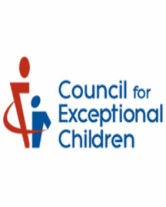Frequently Asked Questions on ADD/ADHD
Please provide an overview of attention deficit disorders.
Attention deficit disorder is a syndrome characterized by serious and persistent difficulties in the following three specific areas:
- Attention span.
- Impulse control.
- Hyperactivity (sometimes).
ADD is a chronic disorder that can begin in infancy and extend through adulthood, having negative effects on a child's life at home, school, and within the community. It is conservatively estimated that 3 to 5% of our school-age population is affected by ADD. Even though the exact cause of ADD remains unknown, research shows that ADD is a neurologically-based medical problem. There is no one "test" for determining if a person has this disorder. An accurate diagnosis requires an assessment conducted by a well-trained professional usually a developmental pediatrician, child psychologist, child psychiatrist, or pediatric neurologist. (From ERIC EC Digest E569, Teaching Children with Attention Deficit/Hyperactivity Disorders).
What information is available on legal issues and attention deficit disorder?
Most students with ADD are served in the general education classroom. Some students may receive services under the rules and regulations of either Individuals with Disabilities Education Act (IDEA) or Section 504 of the Rehabilitation Act of 1973. The IDEA defines as eligible only students who have certain specified types of disabilities and who, because of one of those conditions, need special education and specially designed instruction. Section 504 protects all qualified students with disabilities, defined as those having any physical or mental impairment that substantially limits one or more major life activities including learning. Section 504 covers all students who meet this definition, even if they do not need to be in a special education program. It is important for classroom teachers and other professionals who work with these students to understand the classroom modifications and accommodations that can assist these students. (From Section 504 and the ADA Promoting Student Access: A Resource Guide for Educators. Council for Exceptional Children, Reston, VA).
What can you tell me about the use of Ritalin and other medications in the treatment of ADD? What are some alternatives to medication?
No cure or "quick fix" exists to treat AD/HD. The symptoms, however, can be managed through a combination of efforts. management approaches need to be designed to assist the child behaviorally, educationally, psychologically, and, in many instances, pharmacologically. Medication has proven effective for many children with AD/HD. Most experts agree, however, that medication should never be the only treatment used. Many parents and teachers have heard that mega-vitamins, chiropractic scalp massage, visual/ocular motor training, biofeedback, allergy treatments, and diets are useful treatments for AD/HD. However, these treatments are often experimental, and advocates and parents need to become informed consumers and exercise caution when considering such treatments. (From NICHCY's briefing paper on ADD).
I think my child is gifted. My child's teacher says he might have an attention deficit disorder. Is this possible? Where can I get information on children who are gifted and might have an attention deficit disorder?
During the past five years, an increasing number of gifted children have been identified or diagnosed as having attention deficit disorder, with or without hyperactivity. This dramatic increase is somewhat disturbing, and has been explained in many different ways including greater awareness on the part of educational professionals and improved diagnostic techniques. However, ADD in gifted students is difficult to assess because so many of the behavioral characteristics are similar to those associated with giftedness or creativity. A child who is gifted may have ADD. Without a thorough professional evaluation, including a physical examination by a physician, it is hard to tell.














